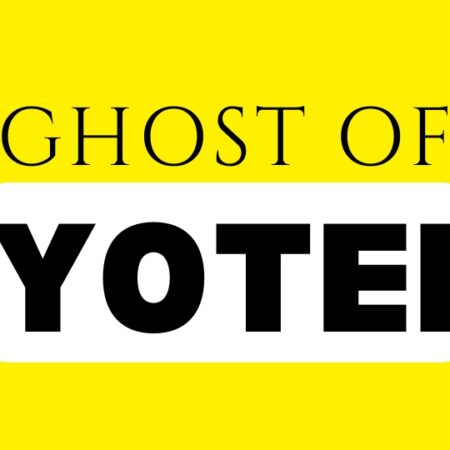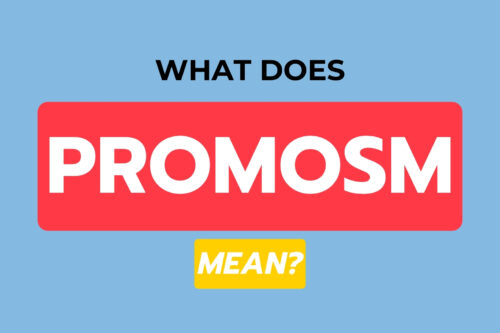If you are working in the film industry, politics or even in the business sector, you must have heard about the term nepotism. Whereas, if you don’t know about nepotism and what it means, then don’t worry.
In this blog post, we are going to explore everything about nepotism, its history, examples, how to understand it and how to combat nepotism and more.
So, let’s get started.
What Is Nepotism ?
What does Nepotism mean?
Nepotism is a term that refers to the practice of favoring relatives or close friends—especially by giving them jobs. The word comes from the Latin word “nepos,” meaning nephew or grandson.
Historically, it was used to describe the practice of popes and bishops appointing their nephews to important positions within the church. Today, nepotism is seen in various fields, including politics, business, and entertainment.
Definition of Nepotism
Nepotism is defined as “Favoritism shown to relatives in job opportunities or promotions.”
How to Pronounce Nepotism
| Language / Accent | Description | Audio Pronunciation |
|---|---|---|
| 🇺🇸 US English | Nepotism Pronunciation in American English | |
| 🇬🇧 UK English | Nepotism Pronunciation in British English |
History and Origin of Nepotism
Concept of nepotism dates back to the 14th and 15th centuries. The term originated from the practices of the Catholic Church, where popes and bishops would appoint their nephews to high-ranking positions.
This was partly due to the lack of legitimate heirs and the need to keep power within the family. Over time, the term expanded to include any act of favoritism towards family members or close associates .
What are the Types of Nepotism?
Nepotism can be categorized into three main types:
- Familial Nepotism: This type of nepotism involves favoritism shown towards family members in various aspects—such as hiring, promotions, or other benefits within an organization.
- Crony Nepotism: Crony nepotism refers to—the practice of showing favoritism to friends or close associates when it comes to opportunities or advantages, often at the expense of others who may be more qualified.
- Political Nepotism: Political nepotism occurs when individuals in positions of power—use their influence to provide unfair advantages to family members in political roles, appointments, or other government-related opportunities.
Examples of Nepotism in Different Fields
Nepotism in Politics
If you look at politics, Nepotism is quite common. Historical examples include John F. Kennedy appointed his brother Robert Kennedy as Attorney General.
More recent examples include Donald Trump appointing his daughter Ivanka Trump and son-in-law Jared Kushner to senior advisory positions in the White House .
Nepotism in Business
In the business world, nepotism can be seen in family-owned companies where leadership roles are often passed down to family members.
For instance, Jeff Bezos hired several of his cousins for leadership positions at Amazon during its early years.
Nepotism in the Entertainment Industry
In the entertainment world, nepotism is pretty common.
Lots of actors and actresses get a leg up because of their family connections.
For instance, Gwyneth Paltrow, whose mom is actress Blythe Danner, and Dakota Johnson, whose parents are actors Melanie Griffith and Don Johnson, have both done well in their careers thanks to their family links.
This is a hot topic on Reddit too, with many users discussing how family ties can impact success in showbiz.
Understanding Nepotism
Is Nepotism Good or Bad?
Nepotism can be good or bad. It can create a family legacy and loyalty at work, but it can also cause unfairness, resentment, and less diversity and creativity in a company.
What is the Difference Between Nepotism and Cronyism?
While nepotism refers to favoritism towards family members, cronyism involves favoring friends or associates. Both practices undermine meritocracy and can lead to inefficiencies and corruption.
What is the Main Cause of Nepotism?
Nepotism often arises from a desire to maintain control and trust within an organization. Besides, it happens to do financial malpractice or for personal financial benefits done through the collective activities by the family members, relatives or even friends. It can also be driven by cultural norms, poor management practices, and a lack of regulatory oversight.
What Do You Call a Person Who Practices Nepotism?
A person who practices nepotism is often referred to as a “nepotist.”
Is There a Federal Law Against Nepotism?
Yes, there is a federal law, known as 5 U.S.C. § 3110, that prohibits federal officials like Members of Congress from hiring or promoting their relatives in agencies they oversee [1]. This law is to keep the federal civil service honest, making sure people get jobs based on their skills, not who they know [2].
According to this law, a “public official” is someone who can hire, promote, or advance individuals, and a “relative” includes family like parents, siblings, and children [3].
Though nepotism itself isn’t illegal, showing favoritism to friends and family can lead to discrimination or harassment based on things like race or religion, color national origin, and sex, which is against the law [4]
Which Industry Has the Most Nepotism?
Nepotism is prevalent in many industries, but it is particularly common in politics, family-owned businesses, and the entertainment industry.
Legal Aspects of Nepotism
Nepotism is a contentious issue in many workplaces. Understanding its legal aspects is crucial for both employers and employees.
Is Nepotism Illegal in the US?
In the United States (USA), nepotism is not universally illegal. However, it can become illegal if it violates anti-discrimination laws or results in the misuse of company resources. For example, federal law prohibits workplace discrimination based on race, nationality, religion, or gender. If nepotism leads to such discrimination—it can be grounds for legal action .
Is Cronyism Illegal?
Cronyism, which involves favoring friends or associates, ( is similar to nepotism ) but focuses on non-family relationships. Like nepotism, cronyism is not inherently illegal in the private sector. However, it becomes problematic—if it results in discrimination or violates specific company policies.
Is Nepotism a Federal Crime?
Nepotism can be considered a federal crime in certain contexts. For instance, federal officials are prohibited from appointing, promoting, or recommending their relatives for positions within the agencies they oversee. This is outlined in the Civil Service Reform Act of 1978 and other federal regulations.
Consequences of Nepotism
Nepotism can have far-reaching consequences, affecting workplace dynamics, employee morale, and overall organizational health.
What is the Dark Side of Nepotism?
The dark side of nepotism includes unfair treatment, bias in decision-making, and exclusionary practices. It can lead to resentment among employees, decreased morale, and a toxic work environment. Employees who feel overlooked in favor of less qualified relatives may become demotivated and disengaged.
Another toxic side in the business nepotism is these controlled people (family members) misuse their power in a collective way to make money or build wealth. For example, if anyone works in the purchase section/department, they place an LPO to a local business/company about their requirement. Then another family member in the stores/goods department will mark the receipt of goods in paper and not the physical receipt. Finally, this malpractice ends when a family member in the finance department releases payment in the form of cash or check to the local business that they own.
Can Nepotism Get You Fired?
Yes, nepotism can lead to termination, especially if it violates company policies or results in significant workplace issues. Employees who engage in nepotism may face disciplinary actions, including termination—if their actions are deemed harmful to the organization.
Is Nepotism Harassment?
While nepotism itself is not classified as harassment—it can contribute to a hostile work environment. If favoritism towards relatives leads to unfair treatment or discrimination against other employees, it can be considered a form of workplace harassment.
Is Nepotism Toxic?
Nepotism is often viewed as toxic because it undermines meritocracy and fairness. It can create an environment where employees feel undervalued and unmotivated, leading to decreased productivity and high turnover rates.
Examples and Scenarios
Who is an Example of Nepotism?
A well-known example of nepotism is the appointment of Ivanka Trump and Jared Kushner to senior advisory roles in the White House during Donald Trump’s presidency. Their appointments were widely criticized as examples of nepotism due to their familial relationship with the president.
What Family Members are Considered Nepotism?
Nepotism typically involves immediate family members—such as parents, children, siblings, and spouses. However, it can also extend to more distant relatives like cousins, in-laws, and even close friends in some cases. The specific definition can vary depending on the organization’s policies and the context in which nepotism occurs.
What Are The Legal Implications Of Nepotism?
Nepotism can have several legal implications—particularly if it violates employment laws or ethical standards.
1. Violation of Equal Employment Opportunity Laws
Nepotism can lead to violations of Equal Employment Opportunity (EEO) laws if it results in discrimination based on race, gender, religion, or other protected characteristics. Employers must ensure that hiring and promotion practices are fair and based on merit.
2. Breach of Fiduciary Duty
In some cases, nepotism can constitute a breach of fiduciary duty. This occurs when an employer prioritizes personal relationships over the best interests of the organization, leading to potential financial losses or damage to the company’s reputation.
3. Conflict of Interest
Nepotism often creates conflicts of interest, where personal relationships interfere with professional responsibilities. This can lead to biased decision-making and undermine the integrity of the organization.
What Are The Potential Consequences Of Nepotism In The Workplace?
Here are the major consequences of workplace nepotism.
1. Decreased Employee Morale
When employees perceive that promotions and job opportunities are given based on relationships rather than merit—it can lead to decreased morale. Employees may feel undervalued and unmotivated, believing that their hard work and skills are not recognized or rewarded.
This can result in reduced productivity and engagement, as employees may not see the point in putting in extra effort if they believe it won’t be rewarded fairly .
2. Negative Impact On Company Culture
Nepotism can create a toxic work environment where favoritism is the norm. This can lead to resentment among employees, fostering a culture of distrust and dissatisfaction.
When employees feel that the workplace is unfair—it can lead to higher turnover rates, as talented individuals may leave the company in search of more equitable opportunities.
3. Increased Risk Of Lawsuits
Nepotism can also increase the risk of legal issues for a company. If employees believe they are being discriminated against in favor of less qualified relatives or friends of management—they may file lawsuits alleging unfair treatment or discrimination. This can result in costly legal battles and damage to the company’s reputation.
Why Is Nepotism Considered Controversial?
Nepotism is often viewed negatively because it undermines the principles of fairness and meritocracy, leading to several controversial issues.
1. Unfair Advantage for Family Members
One of the main criticisms of nepotism is that it gives an unfair advantage to family members or friends, regardless of their qualifications. This can result in less qualified individuals being placed in important positions, which can harm the overall performance and efficiency of the organization.
2. Lack of Diversity and Meritocracy
Nepotism can hinder diversity and meritocracy within the workplace. When hiring and promotions are based on personal relationships, it limits opportunities for individuals from diverse backgrounds who may be more qualified. This can lead to a homogenous workforce that lacks the varied perspectives needed for innovation and growth.
3. Negative Impact on Organizational Culture
The presence of nepotism can negatively affect the organizational culture by fostering an environment of favoritism and bias. This can lead to decreased trust among employees, lower morale, and increased turnover rates. A culture that prioritizes relationships over merit can also discourage talented individuals from joining or staying with the company [9].
How to Identify Nepotism?
Identifying nepotism in the workplace involves recognizing certain behaviors and patterns that indicate favoritism towards family members or friends.
1. Hiring and Promoting Family Members
One of the most obvious signs of nepotism is the hiring or promotion of family members, especially when they lack the necessary qualifications or experience. If a company frequently hires or promotes relatives of management, it may indicate a pattern of nepotism.
2. Giving Preferential Treatment to Family Members
Preferential treatment can take many forms, such as assigning easier tasks, offering better work schedules, or providing higher salaries to family members. If certain employees consistently receive special treatment without merit, it could be a sign of nepotism.
3. Ignoring Qualified Candidates in Favor of Family Members
When qualified candidates are overlooked for job opportunities or promotions in favor of less qualified family members—it is a clear indication of nepotism. This can be particularly damaging to employee morale and the overall effectiveness of the organization.
How to Address Nepotism?
Addressing nepotism requires a proactive approach to ensure fairness and transparency in the workplace.
- Establish Clear Policies: Implement and enforce anti-nepotism policies that outline acceptable hiring and promotion practices.
- Promote Transparency: Ensure that all hiring and promotion decisions are transparent and based on merit.
- Encourage Reporting: Create a safe environment for employees to report instances of nepotism without fear of retaliation.
- Conduct Regular Audits: Regularly review hiring and promotion practices to ensure compliance with anti-nepotism policies.
How Can Companies Avoid (Combat) Nepotism?
To prevent the negative impacts of nepotism, companies can implement several strategies to ensure fair and transparent hiring and promotion practices.
1. Implementing Clear Policies On Hiring And Promotions
Companies should establish clear, written policies that outline the criteria for hiring and promotions. These policies should emphasize merit-based decisions and prohibit favoritism. By having these guidelines in place, companies can ensure that—all employees are aware of the standards and processes reducing the likelihood of nepotism.
2. Creating A Transparent Hiring Process and Accountability Measures
Transparency in the hiring process and accountability in all employment decisions is essential to prevent nepotism. This includes openly advertising job openings, conducting fair and unbiased interviews, and using standardized evaluation criteria.
This also consists of documenting the reasons for hiring and promotion decisions, conducting regular audits, and providing channels for employees to voice their concerns. By making the hiring process transparent, companies can ensure that all candidates are given a fair chance based on their qualifications and experience.
3. Encouraging Diversity And Inclusion
Promoting diversity and inclusion within the workplace can help combat nepotism. By valuing diverse perspectives and backgrounds, companies can create a more equitable environment where decisions are based on merit rather than personal relationships. This can also enhance innovation and creativity within the organization.
Conclusion
Nepotism is a widespread practice that can be found in various fields. While it can help build loyalty and maintain control within an organization, it often leads to unfair treatment and a lack of diversity. Understanding the history, types, and effects of nepotism can help organizations develop policies to mitigate its negative impacts and drive the entire workforce towards its goal.
FAQ on Nepotism and Nepo Babies
Is it bad to be a nepo baby?
Being a nepo baby, or a child of a famous person who benefits from their parents’ connections, has its pros and cons. While it can open doors, it also brings scrutiny and expectations. Many nepo babies feel they have to work harder to prove their worth .
What is the meaning of nepotism girl?
A “nepotism girl” refers to a female who benefits from nepotism, often in the entertainment industry. This term highlights the gendered aspect of nepotism, where women might face more criticism than their male counterparts.
What is a nepotism baby?
A nepotism baby, or nepo baby, is someone who gains opportunities in their career due to their parents’ fame or connections. This term is often used in a critical context to suggest that their success is not solely based on their talent.
What is the new definition of nepotism?
Nepotism traditionally means favoring relatives for jobs or benefits. The modern context extends this to any form of favoritism based on personal connections rather than merit.
Is nepotism a form of favoritism?
Yes, nepotism is a specific form of favoritism where the preference is given to family members. It undermines fairness and meritocracy in professional settings.
What is another term for nepotism?
Another term for nepotism is “cronyism” when it involves favoring friends. Both terms describe unfair advantages given based on personal relationships.
What do Nepo babies mean?
Nepo babies are individuals who have leveraged their parents’ fame or connections to advance their own careers. This term often carries a negative connotation, implying their success is not entirely earned.
————————
Sources:
[1] House Ethics Manual, Chapter 7 on staff rights and duties
[3] 5 U.S. Code § 3110 – Employment of relatives; restrictions






Leave a Reply